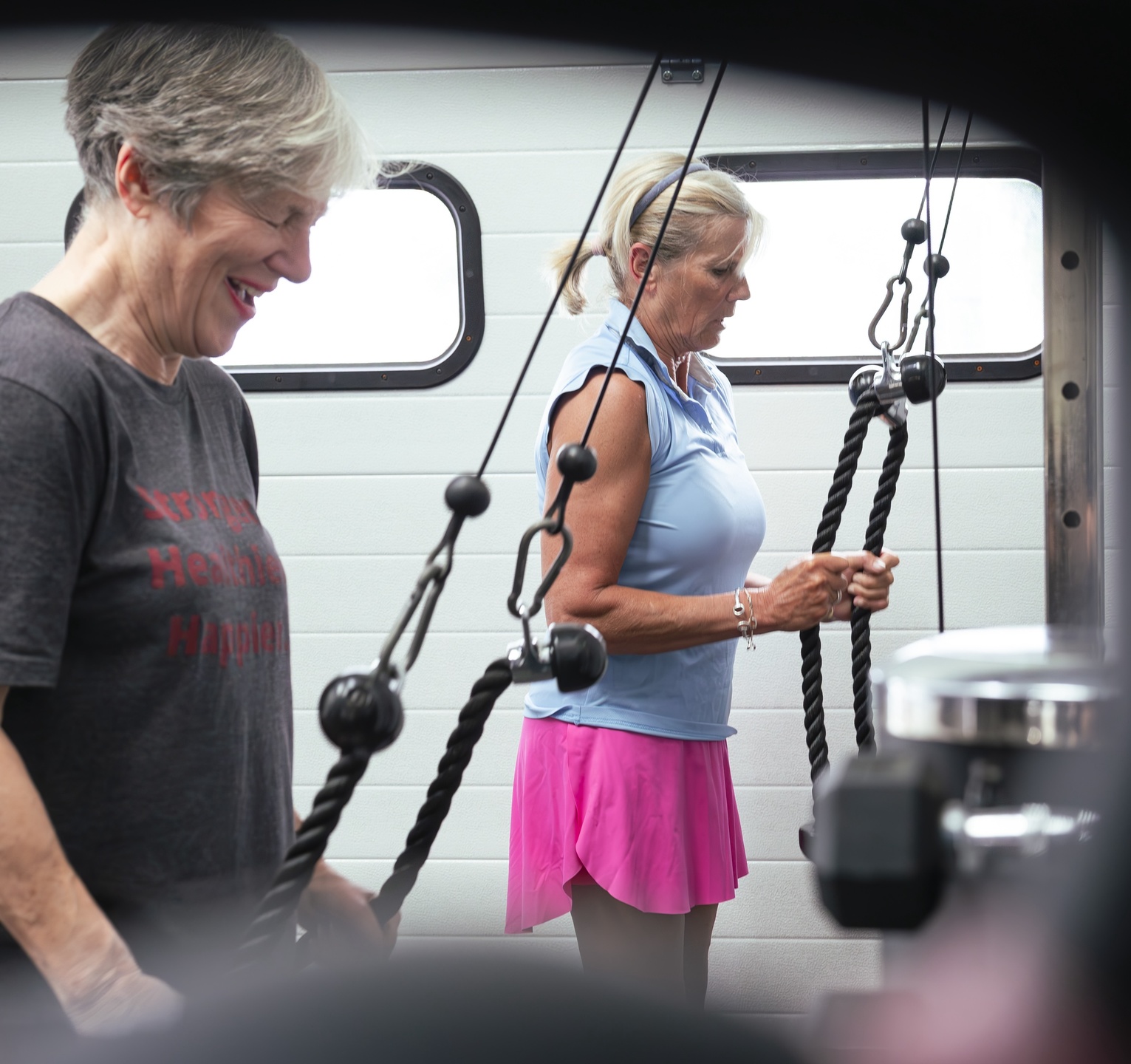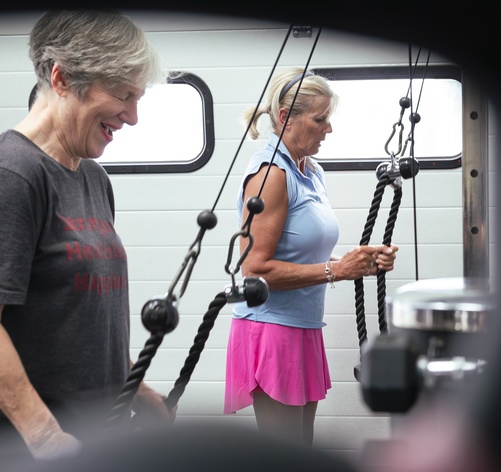5 Game-Changing Benefits of Strength Training Every Menopausal Woman Needs to Know
Before we begin, I'd recommend you take a look at our previous blog: The Oxfordshire Guide to Menopause: What Every Woman Should Know.
Menopause is a transformative phase of life for women, marked by significant hormonal changes that can affect physical and mental health. While these changes can be challenging, strength training has been shown to play a vital role in improving well-being during menopause.
Dr Louise Newson, a leading menopause specialist, frequently highlights the importance of exercise. She advocates strength training as one of the most effective ways to address the physical changes associated with menopause, particularly for bone health, muscle mass, and mental well-being. At Hall Personal Training in Oxfordshire, we combine our expert knowledge with personalised support to help our female members thrive during this life stage.
Let’s dive into five game-changing benefits of strength training every menopausal woman needs to know:
1. Boosts Bone Density and Reduces Osteoporosis Risk
Dr Louise Newson warns that postmenopausal women lose bone density at a rate of 1-2% per year due to declining estrogen levels. This increases the risk of fractures and osteoporosis. Research shows that strength training can significantly slow this process. A study in the Journal of Bone and Mineral Research found that resistance training increased bone density by up to 2.9% in postmenopausal women over a year, with another study showing up to 5% increase within 6 months for women going through the menopause.
At Hall Personal Training, our training programmes include exercises like squats, deadlifts and press ups, designed to improve muscle growth and strength, and to help strengthen bones safely and effectively. Every exercise is tailored to each members’ fitness level, ensuring maximum benefit without risk of injury.
2. Supports Hormonal Balance and Reduces Anxiety
Menopause often brings mood swings, anxiety, and low energy, largely due to fluctuating hormone levels. Strength training helps by releasing endorphins, which improve mood and reduce stress. Dr Newson emphasises the link between regular exercise and reduced menopausal symptoms, particularly depression and anxiety.
Additionally, research published in Menopause: The Journal of The North American Menopause Society shows that women who engage in strength training report improved emotional well-being. At Hall Personal Training, we create a positive and supportive environment - whether you prefer one-on-one sessions or small group personal training - to ensure you leave each session feeling empowered.
3. Increases Muscle Mass and Maintains Metabolism
According to Dr Stacy Sims, an exercise physiologist specialising in women’s health, menopausal women lose up to 8% of muscle mass per decade if they don’t engage in resistance training. This muscle loss slows metabolism, contributing to weight gain. Strength training is crucial for building lean muscle, which burns calories even at rest!
Our personal training programmes focus on compound movements, such as squats, chin ups and lunges, which efficiently build muscle and improve strength. We're able to tailor these exercises to your ability, ensuring progress without pushing you too fast, too soon.
4. Improves Sleep Quality
Dr Newson also highlights sleep issues as a common complaint during menopause, with many women struggling with insomnia or restless nights. Strength training has been shown to improve sleep by reducing cortisol (the stress hormone) and increasing relaxation.
Incorporating strength training into your weekly routine can help regulate your sleep patterns. Our small group personal training sessions provide a consistent, manageable way to stay active, giving you the energy to take on each day.
5. Reduces Risk of Chronic Conditions
Menopause increases the risk of heart disease, type 2 diabetes, and high blood pressure. Strength training can help mitigate these risks by improving cardiovascular health, enhancing insulin sensitivity (improving blood sugar management) and supporting weight management.
Dr Sims advises focusing on progressive overload - gradually increasing resistance over time - to maximise these health benefits. At Hall Personal Training, we guide you through personalised and periodised workouts to ensure you’re continually improving and staying motivated.
Expert-Backed Advice for Menopausal Women
Both Dr Louise Newson and Dr Stacy Sims agree; strength training is non-negotiable for women navigating menopause. Here’s our recommendations on how to get started:
- Prioritise Frequency: Aim for at least 2-3 strength training sessions per week.
- Incorporate Functional Movements: Focus on exercises that mimic daily activities, like squats, lunges and rows.
- Work with a Professional: Getting started can often feel like the hardest step. Working with a personal trainer provides the accountability you need to overcome that initial inertia. They'll guide you through an effective strength training programme tailored around you and your needs, ensuring proper form and continued progression.
Why Choose Hall Personal Training?
At Hall Personal Training, we take pride in offering tailored fitness plans for women at all stages of life. Our experienced coaches are well-versed in supporting menopausal clients, helping them build strength, confidence, and resilience. Whether you prefer individual attention or the camaraderie of small group personal training, we’ll help you reach your goals in a supportive environment - guiding you towards a stronger, healthier, happier life!
Are you suffering from symptoms of menopause? Check out your next blog read: The Top 3 Vitamins for Menopause: What Science Really Says



